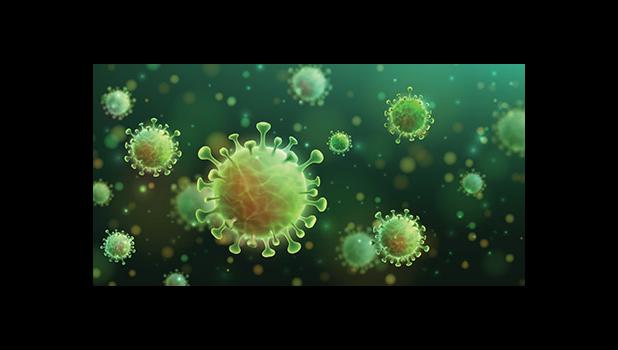Three new COVID-19 cases in Nome
The Bering Strait/Norton Sound region saw just three new cases of COVID-19 this week, the smallest weekly increase in recent months. Shipments of both Pfizer and Moderna vaccines have also arrived in the region, with upwards of 250 doses already administered in Nome, and some villages already receiving their first shipments.
Norton Sound Health Corporation announced two new cases in Nome on Wednesday, December 16. One was a Nome resident who caught the virus through community spread, and the other was a nonresident who tested positive after recently traveling from outside the region.
Between December 17 and December 20, no new cases were reported in the region. On Monday, December 21, one new case was announced, a Nome resident who was a known close contact of another case.
As of Tuesday, NSHC Medical Director Dr. Mark Peterson said there were about 11 active COVID-19 cases in Nome, and no active cases in regional villages.
The low regional numbers are a good sign, he said, but he added that case numbers remain high elsewhere in the state. What appeared to be a dip in cases reported statewide over the weekend turned out to be a delay in reporting.
Ten new deaths in Alaska were reported on Tuesday alone, although Peterson said it was unlikely all those deaths actually occurred on the same day.
As of Monday, NSHC had administered 274 doses of the Pfizer vaccine, all in Nome. The first people to receive it were residents and staff of Quyanna Care Center, followed by frontline healthcare workers and first responders like EMS, fire and police.
NSHC then planned on opening up vaccinations to Elders 80 years and older on Monday, but were ahead of schedule and decided to expand eligibility to Elders 65 years and older.
As more vaccine arrives, NSHC will continue expanding eligibility to younger age groups. At some point, critical infrastructure workers in Nome will also receive early vaccinations, although the exact timeline depends on when the hospital receives more doses, which can be difficult to predict.
NSHC also received 400 doses of the Moderna vaccine on Monday, and is scheduled to receive 200 more later this week. The Moderna vaccine will be the preferred type to distribute to regional villages, Dr. Peterson said, because it is more stable and can be kept in the refrigerator for 30 days instead of just five.
On Tuesday, vaccination teams had already been sent to Stebbins, St. Michael and Brevig Mission with those communities’ first doses. On Wednesday, NSHC plans to send teams to Gambell, Savoonga and Unalakleet.
Since Bering Air has no flights on Christmas or over the weekend, the remaining villages will receive their first vaccines next week. Koyuk, Elim and Wales and scheduled to receive doses on Monday, Shaktoolik and White Mountain on Tuesday, and Shishmaref and Golovin on Wednesday. Diomede will get its vaccines via Wales.
The first village shipments contain enough doses to vaccinate about 10 percent of the population in each village, Dr. Peterson said. Preference will go to clinic staff, essential workers like water and power plant operators, and first responders like VPSOs.
Any doses a village has left over will go to Elders, starting with the oldest and highest risk. Dr. Peterson said the clinics were putting together plans to administer vaccines directly in Elders’ homes as needed.
He encouraged those eligible to sign up for vaccine and tell their friends and family, especially Elders who may not have access to internet or follow the news, to get vaccinated.
The Food and Drug Administration has independently assessed both the Pfizer and Moderna vaccines and found them to be safe and effective.
In the last few weeks, five healthcare workers in Alaska have experienced allergic reactions to the Pfizer vaccine, but Dr. Peterson stressed that a small number of allergic reactions was normal and expected with any vaccine or medication.
So far, everyone with a severe allergic reaction has been treated with epinephrine, a standard medication present in the Nome hospital and all the village clinics, and had recovered within a day.
Vaccine recipients are required to stay under supervision for at least 15 minutes after receiving the shot, in case of an allergic reaction. Those with a history of medical allergies may be asked to stay longer.
Dr. Peterson added that while the effects of allergic reactions are easily treated by healthcare workers, the effects of COVID-19 are not, and the percentage of people who experience treatable reactions to the vaccine is still much smaller than the percentage of people who get sick and die from the virus. He also reiterated that one dose of the vaccine does not immediately confer resistance to the virus. Vaccine recipients will need to come back to the clinic or hospital for a second dose two or three weeks after the first, depending on which type of vaccine they receive, and will only develop a full antibody response two weeks after the second dose.
As of Tuesday, the state of Alaska had reported 44,463 total cases, 948 hospitalizations and 194 deaths. As of Monday, the Nome, Bering Strait/Norton Sound region had reported 276 total cases, five hospitalizations and no deaths.
Those eligible to receive the vaccine in Nome are encouraged to schedule an appointment online at www.picktime.com/NSHC. Those eligible in villages should reach out to their village clinic to understand their local vaccination schedule.

